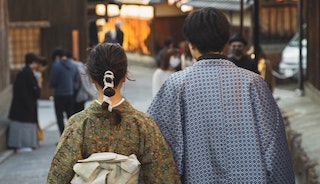TOKYO, May 27 (News On Japan) - A popular Japanese health management app known as Asken has removed a scoring anomaly that users affectionately dubbed the “Jiro Bug”—a glitch that awarded disproportionately high health scores to meals including Jiro-style ramen.
The fix has disappointed many fans who treated the app as both a diet tool and a game to optimize their nutritional performance.
Asken, widely used as a calorie and nutrition tracking app, allows users to record their daily meals and receive a health score based on nutritional balance and caloric intake. However, the app recently came under scrutiny after users discovered that logging a meal of Jiro-style ramen—famous for its high-calorie broth, thick noodles, and generous vegetable toppings—could yield near-perfect scores, seemingly contradicting the app's health-first mission.
The issue gained traction online in October 2023, when users began sharing screenshots of 100-point scores following Jiro ramen entries. Many dubbed it the "Jiro Bug" and speculated on its causes, from the meal's high vegetable content to possible flaws in the app’s nutritional database. Fans joked that Jiro was a "complete nutritional food" and used it as a backdoor to boost their scores, despite its reputation as a heavy, indulgent dish.
Asken finally addressed the issue with a formal statement posted on its official account, apologizing for the unintended scoring and confirming that its internal nutritional calculations had been updated. The app now estimates basic Jiro ramen meals at around 1,511 kcal, with some variations exceeding 2,000 kcal, making them harder to score highly.
"We apologize for not meeting expectations," the post read. "Going forward, please continue logging meals accurately in line with their actual contents." The update has since been dubbed a "nerf" by users, borrowing gaming slang that refers to the weakening of an overpowered feature.
The app's character guide, a virtual assistant named Miki, has become a cult favorite among users, further blending the lines between health tracking and fan-driven narrative. Some users reportedly withheld details like alcohol consumption to avoid disappointing her avatar. The community’s emotional attachment even led to playful conspiracy theories during app maintenance—such as speculating Miki had a boyfriend if the app was offline on Christmas.
With Asken's mechanics now patched, users on online forums have already begun strategizing new ways to earn high scores, fueling a unique subculture around gamifying personal health. The company has not ruled out future adjustments, suggesting that this mix of diet tracking, fandom, and optimization may continue to evolve.
Source: チー牛速報















